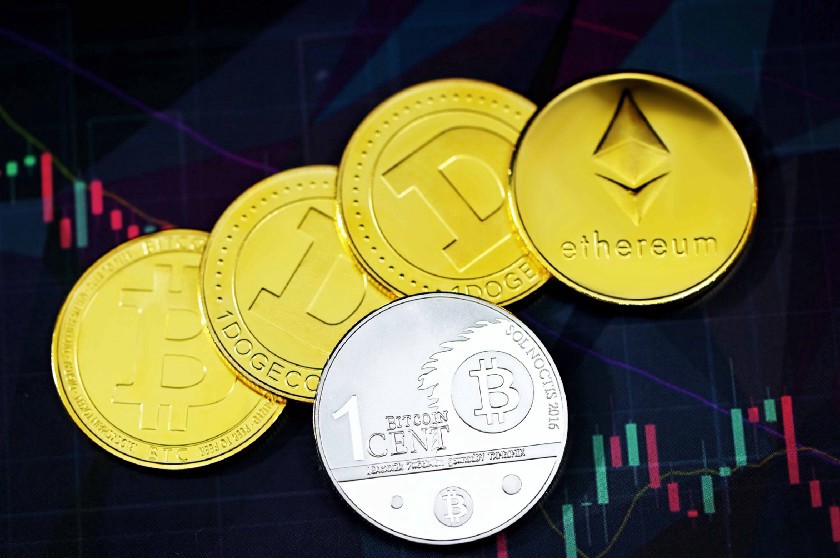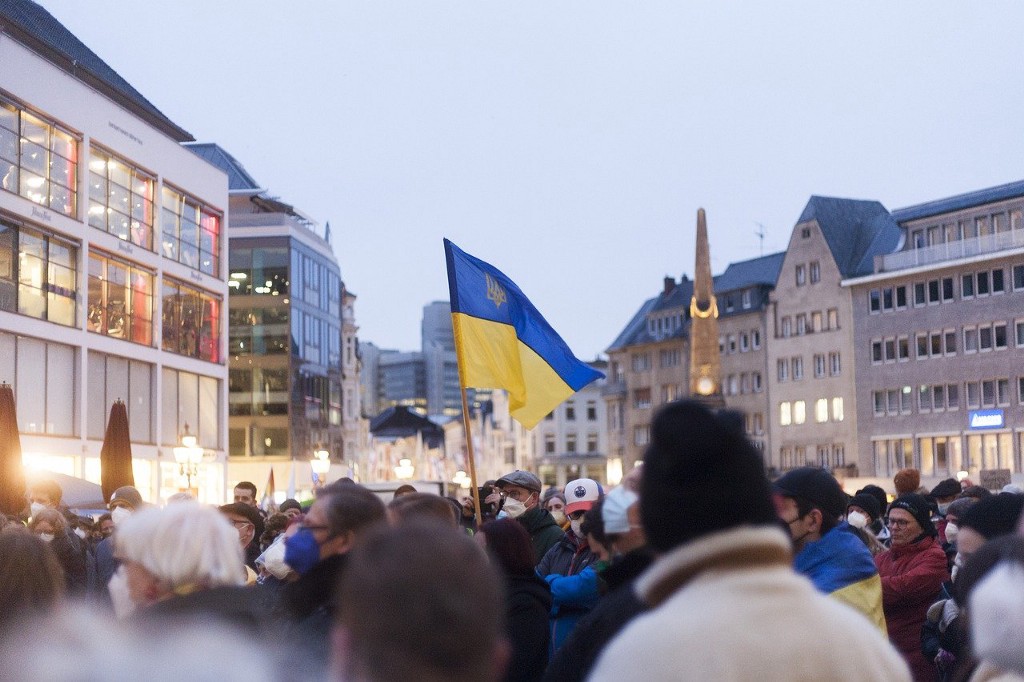Feature your business, services, products, events & news. Submit Website.
Breaking Top Featured Content:
What Does Ukraine’s Conflict Mean for Crypto in the Long Run?


While the armed war between Ukraine and Russia may appear to be confined on a military level, it is likely to have far-reaching consequences for much of the world. For one thing, economists anticipate that it will prompt a dramatic surge in inflation, not least because Russia is the world’s largest exporter of natural gas and the world’s second-largest seller of oil.
Additionally, hundreds of thousands, if not millions, of people will be displaced from Ukraine, posing another refugee problem for the world (and notably Europe).

Then there’s crypto. While the health of the cryptocurrency market and industry may not be a top focus at the moment, there is little doubt that the protracted battle will affect Bitcoin and its competitors. Indeed, one could argue that it has already had impacts, not least since the Bitcoin market fell more than 10% in a single day in response to the initial rumors of a Russian invasion on February 24.
While the likelihood of Russia escaping sanctions via crypto may result in increased regulatory scrutiny of the business in the West, the conflict may benefit the market. This is largely because, it demonstrates how Bitcoin and other cryptocurrencies can aid great causes and empower individuals when other avenues become unavailable.
Cryptocurrency Offers Real-World Utility to Those in Need

When just price action and the short-term picture are considered, the market has reassuringly stabilized (as of this writing) since the initial assault.
On February 24, bitcoin plummeted to a low of $34,740 as investors fled riskier assets. Russia’s foray into Ukraine clearly created significant concern at the time, but given Ukrainian forces’ resistance and the perception that sanctions against Russia were not quite as severe as feared, the situation has subsequently improved for BTC (and other assets). Indeed, BTC has increased by an astonishing 25% since plummeting to £34,740, to over $43,500.
Naturally, the market could fall again if the situation deteriorates unexpectedly, whether due to an escalation of violence or proof that sanctions are having a big negative effect on Western nations as well. However, markets are now performing well in light of the situation, and countless other parts of the conflict that are really beneficial to crypto.
Notably, cryptocurrency has once again demonstrated its suitability as a tool for crowdfunding and charitable giving. According to the latest recent tally from analytical firm Elliptic, the Ukrainian government and pro-government NGOs have received approximately $24.6 million in various cryptocurrencies.
This total is the product of 26,000 distinct donations, including one for $3 billion in bitcoin and another worth $1.86 million in bitcoin.
Not only do such gifts benefit the Ukrainian government and military, but they also demonstrate how cryptocurrencies may help break down barriers to international transactions and activities. In other words, cryptocurrency serves as a resilient link between diverse peoples and nations.
Indeed, this is the underlying message conveyed by other recent cryptocurrency-related headlines from Ukraine. For instance, several individuals have stated that bitcoin and other cryptocurrencies enabled them to flee Ukraine before the war reached their districts. Despite the suspension of ATM withdrawals, some people were able to transfer their BTC/crypto to hot wallets and use them to pay for their travel to other regions of Europe.
Other stories describe how at least one person in Ukraine used BTC to purchase a car (to facilitate their exit from the country), and how multiple members of Crypto Twitter have staged bank runs and blocked ATMs to demonstrate how cryptocurrencies enable people to circumvent financial restrictions and, by extension, war-torn countries that impose such restrictions.
Essentially, the Ukrainian war bolsters the oft-repeated claim that bitcoin ownership enhances individual sovereignty and liberty. And, if an increasing number of people in Ukraine turn to Bitcoin and other cryptocurrencies during the crisis, the latter might help popularize the concept of crypto as a liberating instrument.
How the Ukraine-Russia Conflict Might Affect Cryptocurrency

Given that the Russian ruble has depreciated by up to 25% since Russia was sanctioned, it is probable that we will also see a major increase in Bitcoin and cryptocurrency ownership in the country. As it stands, bitcoin has surpassed the ruble in terms of market capitalization, and with over 11% of the Russian adult population currently owning cryptocurrencies, this figure is likely to climb further as people seek to save their wealth.
That said, things may not be as bright as they appear for Bitcoin and cryptocurrencies, even if crypto appears to have a fantastic crisis. There is growing suspicion that Russia will attempt to circumvent international sanctions in part by resorting to cryptocurrency, but several experts have expressed reservations about how easy it would be to convert billions of dollars to cryptocurrency and transfer such quantities around.
On the other hand, sanctions have targeted so-called oligarchs personally, and the international community may discover that such individuals employ crypto to evade unfavorable financial consequences. This is undoubtedly the US government’s thinking, as it has already begun negotiations with prominent American cryptocurrency exchanges about how to prevent Russian individuals from utilizing Bitcoin and other virtual currencies to circumvent sanctions.
The worry here is that Russian people and entities will continue to use crypto to move their wealth across the world successfully. If this is the case, the industry may face strong resistance from regulators and government agencies, which may seek to severely restrict the usage of cryptocurrencies.
Experts think that this is a real possibility, with Cowen analyst Jaret Seiberg telling MarketWatch that Washington is indeed concerned that Russia may utilize cryptocurrency to dodge sanctions.
“If Russia is successful in this endeavor, we anticipate that political support for crypto in the United States would dwindle, and regulatory risk will increase,” he said.
Of course, the situation in Ukraine and Russia is quite fluid and unknown at the moment, making it difficult to predict whether targeted Russians would embrace cryptocurrency in a significant way. However, given that the crisis has increased bitcoin volumes in both Ukraine and Russia, it remains a possibility. As such, traders should be prepared for the chance that, despite a recent uptick in the market’s fortunes, the market could reverse course in the future, depending on the outcome.
Check out our new platform 👉 https://thecapital.io/
https://twitter.com/thecapital_io
What Does Ukraine’s Conflict Mean for Crypto in the Long Run? was originally published in The Capital on Medium, where people are continuing the conversation by highlighting and responding to this story.
